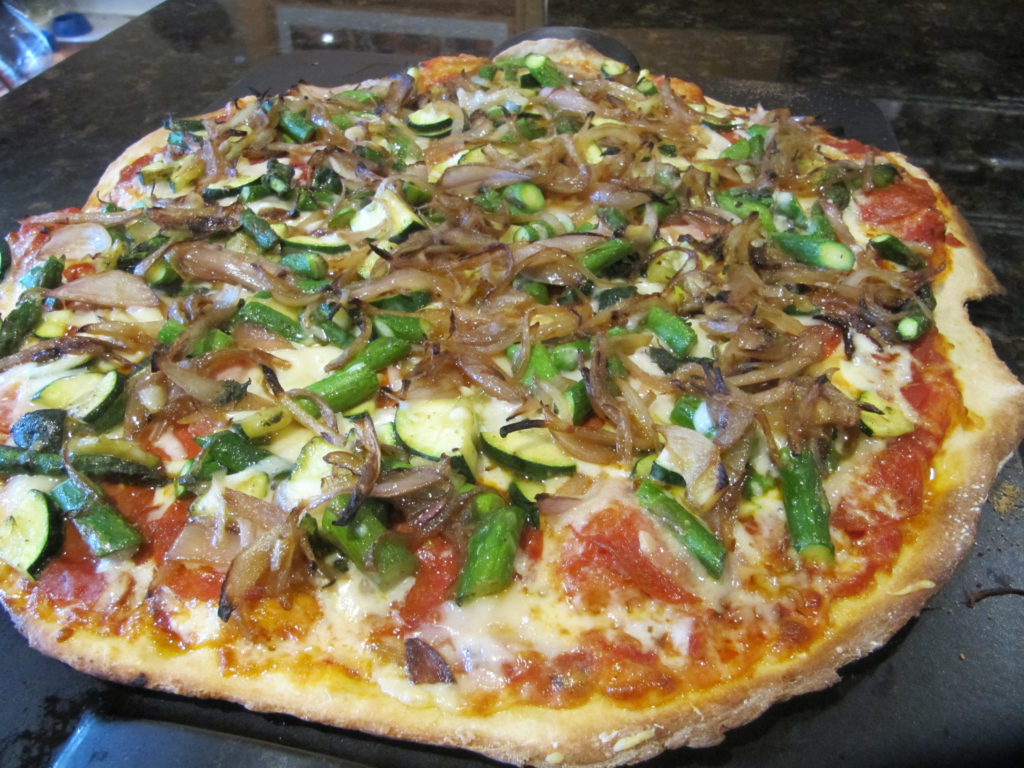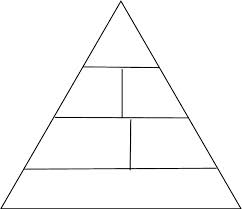Healthy eating should not be a struggle for anyone. And this is especially true if you love good food, love cooking it, bonding around it, celebrating with it, and if it has true meaning in what you consider a good life–you’re a foodie.
If you love food like I do, then trying to get healthy by following the “rules” is pretty miserable. You’ve been told what foods or whole food groups you must avoid, what things you have to force yourself to eat that you don’t like and basically disrupt everything. But what if you’re not like those women who are willing give up their entire lifestyle, identity, family and social life just to be a so-called healthy eater? How can you really be healthy if you’re not happy?
When you see the term healthy eating, it should not bring to your mind dread and anxiety. Healthy eating really means eating in a way that is best for you as an individual, is effortless, and doesn’t include rules imposed by any outside source. If it sounds too good to be true, it’s not. We are only taking healthy eating back to what it was before it was a tool of diet culture and its racist, sexist roots to divide, control and frustrate us into handing over billions of dollars to an industry that is mostly a scam.
Why bother with healthy eating anyway?
Most people start thinking about how to begin healthy eating when they come across some kind of health issue. Maybe you had a checkup and the results of a blood test caused concern. Or maybe you realize that you are feeling a bit sluggish and tired and that’s not normal for you. Or, if you’re like me, you just realized that you aren’t as agile and active with ease to do things you love to do.
So you decide that it’s time to take action right away, but what? Doing your research is a very good start. However, you have to first educate yourself on where you are seeking your information and whether or not it’s reliable. Because healthy eating, but more specifically weight loss is such a lucrative industry, every single group you can imagine is jumping on the bandwagon, but not necessarily for the right reasons.
Healthy eating is not primarily about losing weight, and body weight is not an indicator of good health. No matter what your body looks like it needs nourishment. Nourishment to give you energy, vibrance and joy. Healthy eating is much more about giving yourself what you need than depriving you of what you want. If you want to live a good life, health and healthy eating is a non-negotiable.
Finding reliable healthy eating advice

Food manufacturers want to sell and keep on selling food, whether it’s actually healthy or not. And they have the resources to create a narrative for their own benefit. Whether it’s sugary sodas or refined cereals, they’re all looking for a way to convince you that their products are healthy for you, even if they’re really not.
the behavior of several food companies reflects a split corporate personality, as they contribute to public health problems and simultaneously engage in activities to prevent them. ~Am J of Public Health, Big Food’s Ambivalence: Seeking Profit and Responsibility for Health
Ethical organizations are required to disclose funding sources and potential conflicts of interests in their research, so then the answer to this was for the corporations to create dubious entities that are not quite legitimate and should not be trusted. But the average consumer doesn’t necessarily have the time or resources to investigate, and this on way that bad science gets spread as solid health advice.
In 2015, Coca-Cola was criticized for funding studies that were thought to downplay the effects sugary drinks have on the rise in obesity rates. Just last year, a large National Institutes of Health study meant to understand if a serving of alcohol a day provides any health benefits was shuttered after The New York Times reported that the majority of the money that funded the study came directly from the alcoholic beverage companies. ~Popular Science, Coca-Cola funds health research–and can kill the studies it doesn’t like
And then, there are the people on the innanets, most of whom generally mean well but often don’t have a single clue about healthy eating spread bad advice and healthy eating myths. There are a couple of notorious examples but I don’t want their names in my blog’s mouth so I’ll just give you a couple of cryptic hints. One calls herself a “babe” and the other runs a fake wellness guru site that rhymes with hoop. And that’s all I’ll say about that. Buyer beware.
Fortunately though, you don’t need a whole lot of rules and instructions on how to eat healthy. I’ll give you everything you need in this blog post.
Define what healthy eating really means to you.
First, you need to know what you’re working with. Identify realistic goals from a deep place of truth and as free of outside influence as possible. You should not concern yourself what what the latest celebrity guru or television personality doctor says healthy eating should mean to you. Your answer should come from a place of confidence and self knowledge. But don’t worry if you’re not to that point yet. It is my intention that by the end of this post you will be completely clear about what healthy eating means to you and how you want to move forward in a way that works for you.

Many, or even most people are confused about healthy eating because there is so much conflicting information everywhere preventing you from separating the facts from the propaganda. The Weight Loss Industrial Complex (WLIC) has completely hijacked healthy eating to mean exclusively eating to lose weight. Framing healthy eating in this way is dangerous and short sighted. This is because it puts forth the false belief that only fat people who believe they need to lose weight should be concerned with healthy eating. This could not be further from the truth, and this false belief is likely the root of many health problems.
And then there’s diet culture. Diet culture is the common idea that you have to be skinny to be healthy, and being skinny is best. There is a message that your life must be an never-ending cycle of battling against your body to change it into something it’s not. Even the language sounds violent: “melt”, “blast”, “bust”, “shrink” belly or thigh fat, and that’s the key to beauty/happiness/romance/acceptance/success. Of course you already know what nonsense this is, but do you recognize the underlying beliefs about eating that go along with diet culture, like
- I can’t have that (treat), I’m being good today.
- After the holidays you think you need to “cleanse” or “detox”…what the hell, were you eating poisonous dirt on Christmas day? What are you trying to clean that your liver and kidneys can’t handle?
- Worry about the obesity epidemic or crisis. Yes, there can be some problems but is it really like the plague?
- Commenting about people having lost weight or just constantly evaluating how much other people weigh. This is not what life is all about!
There are plenty of reasons why healthy eating is so important, that have nothing at all to do with losing weight. Healthy eating has tons of benefits:
- More energy. When your diet is varied and balanced you it provides not only immediate energy but also nutrients you need to sustain your heart and your muscles and keep them in good condition so that your body isn’t wasting energy trying to repair and maintain.
- Reverse prediabetes/prevent type 2 diabetes , a chronic lifestyle condition where the body is not able to process glucose into energy, and causes a buildup of glucose in the blood that leads to unhealthy weight gain, possible vision and limb damage and cyclical metabolic problems.
- Prevent heart disease and related chronic lifestyle diseases such as hypertension, atherosclerosis, and stroke, which are caused by the clogging or blockage of the arteries. Learn more about chronic lifestyle disease prevention and diet
- Keep you cute. Clear skin, strong shiny hair and smooth strong nails require a consistently nutritious diet to maintain.
- Sustain pathogenic disease resistance with healthy immune function. Catch fewer colds and avoid the flu and other sicknesses.
All of the above conditions are not only affected by diet, but also by stress levels and physical activity as well, which we will discuss later on.
Detox and cleanse… your mind.
While I don’t believe in diet detoxes and cleanses where you have to severely restrict your intake or choke down green smoothies or lemonade cayenne pepper mixtures, there is a different detox/cleanse that’s actually helpful.
After you have considered what healthy eating means to you it is important to start with a clean slate of thoughts about health and diet. Why? Because the WLIC and the mainstream media have in some cases deliberately misled us about food and health, but also because nutrition science is a complex topic and all of the aspects of healthy eating are not clearly known. The essentials that we do know of healthy eating are pretty simple, but the gaps in knowledge leave holes for the media, the WLIC, industrial food processors, well meaning and not so well meaning advisors to confuse every single aspect of nutrition to the point of oblivion.
Let go of the idea that treating your body well and caring about your health mus somehow be uncomfortable or unpleasant. We are not Puritans so we shouldn’t believe that anything that brings pleasure should be harmful. In terms of food, lack of pleasure and sensuality is counter to the culture and heritage of black and brown people and should be abandoned entirely. Here’s an interesting article about the history of white people and bland food.
So here are some actions you can take right now to begin to unlearn these self sabotaging beliefs about food from diet culture:
- Toss out fashion magazines that are typically full of diet related articles;
- Unsubscribe from diet related social media groups and email lists;
- Prepare yourself to deal with friends and family diet enthusiasts;
- Understand that healthy eating can not be all or nothing. Sometimes you just want a cookie. And eating a cookie doesn’t mean you’ve failed at life and should then eat a whole bag of cookies. Sometimes you might overeat. We all do. You healthy eating will not be successful if you are caught up on perfection. Just do your best and let it go.
This may seem a little extra at first but it’s the only way you can truly rely on your good sense to make good decisions devoid of propaganda and advertising. If, after cleansing your mind of nonsense you are not pleased, you can always go back to getting information from those sources. But don’t start yet. Read this post to the end first.
What healthy eating really requires
I know you’ve been anticipating this huge profound set of incredibly specific instructions that you can take to heart and carry around with you for the rest of your life but get that out of your mind because that’s not how it is.
Healthy eating itself is pretty simple. It’s the implementation, with all the distractions, bad advice, lack of time and lack of skills that create the difficulty. And the way to overcome these barriers is to change the thinking around healthy eating completely. Because otherwise, you’ll put for some effort for a while, and some other trendy idea will come around, and you’ll find yourself jumping from diet to diet and still maintaining the problems you’ve been trying to get rid of, and possible adding some more.

Any food can be healthy because healthy eating isn’t really about judging individual foods, healthy eating is about balance. And what balance works for you may not work for the next person, and what balance worked for you years ago may not work now. But the very basics of healthy eating are the same, no matter if you want to reverse the risk of chronic lifestyle disease, gain energy, and look and feel better about yourself.
- Lots of vegetables and fruits. Pretty much every single person in the
 US and developed countries need to increase the amount of fiber rich vegetables and fruits in their daily diets. If you don’t, you are definitely in the minority.
US and developed countries need to increase the amount of fiber rich vegetables and fruits in their daily diets. If you don’t, you are definitely in the minority. - Nuts, seeds and legumes, which are also fiber rich and good sources of protein.
- Whole grains that supply needed energy and fiber
- High quality meat, poultry, fish or dairy, unless you’re vegetarian
- Other things. No food is bad or off limits.
Now you may be thinking that these ideas are all too broad and not specific enough to create a plan. Well, its intentionally vague. That’s because how you balance out these food groups is on you, and you don’t need a detailed plan. If you are generally a healthy person who has not been diagnosed with a medical condition, this is fine, and there is no need for anyone to prescribe a detailed, specific eating plan for you. So, healthy eating requires that we all just relax.
Let’s now examine what healthy eating is NOT:
- Restricting any foods (seriously, nothing is off limits)
- Eliminating entire food groups (like carbohydrates)
- Counting calories
- Fasting
- Exercising to earn food
- Classifying food as “good” and “bad”
- Pretending not to classify food as “good” and “bad” but really classifying food as “good” and “bad”
- Taking dietary supplements
- Juicing only for health benefits
- Eating on an arbitrary schedule–when you’re not even hungry
- Forcing yourself to eat “superfoods”
- Using food as medicine, and letting someone prescribe it to you like it’s a dangerous drug
- Goodytwoshoeing (ok I made that up) it means posting pics of healthy looking food (that you know damn well is nasty) just to gain attention and praise on social media for being so “good”. And by the way, when people reply “YUM” to your crappy health food post just know that it means that shit looks disgusting LOL.
- Trying this plan and that plan and constantly looking for your next diet fix. This is the end of the line for you. Once you learn how to really eat healthy you’ll never need another eating plan for the rest of your life.
Keys to getting started
- Begin your healthy eating adventure with one step at a time. The biggest mistake I see when people are excited about getting healthy is that they do the equivalent of jumping off of a giant cliff into the ocean without a flotation device, and they can’t even swim yet. It doesn’t end well at all. Instead, make one small change and stick with it for a few weeks before moving on to the next. For example, depending on your current state, you could try adding vegetables to your breakfast every day. Or breakfast and lunch. if that’s too easy, try adding one serving of vegetables to every single meal of your day. The key is to start where you realistically are right now and master one step before moving on to the next.
- If you don’t live alone, don’t do this alone. Healthy eating will not work long term if you have a family and you are preparing separate meals for your family who are not into healthy eating. The whole thing will become too tedious and who’s going to give up, you or them? You will. Now, that said, you will need a whole ‘nother strategy to orchestrate this family healthy eating adventure. Maybe you’ve already tried this in the past and failed but trust me, it can be done, with a different approach. Don’t have a family meeting and declare that you’re going to be giving them healthy food only from here on out. Also, don’t try to trick them by hiding vegetables in cupcakes. You need to be low key about it. Don’t make a big freakin’ deal about it but also don’t abandon your plans if they begin to protest. You may have to ease them into it similarly to how you are easing yourself into it, but maybe slower. But you still must do it.
- Resist the urge to make healthy eating your identity. Here’s where the nutri-ligions and nutri-nonsense prevail. Just an extension of labeling food good and bad, labeling yourself can be just as problematic. You don’t need to be baptized as a vegan or vegetarian to eat healthy. The key here is not to give yourself a name you have to live up to and risk being a failure at.
- Keep it interesting. You will need to learn some creativity to keep this healthy eating thing going for you and your family. There’s only so much you can do with Pinterest recipes before things begin to get old and stale. Cooking without recipes is the most important tool in your healthy eating toolbox. The key is to learn to do things your own way, so they work for you.
Healthy eating is mostly mind over matter.
Ok, here’s where you’re gonna think I’m going all woo-woo on you but I’m absolutely not. Mindfulness and intuitive eating are two are the most essential tools for healthy eating.
What exactly is mindfulness? There is mindful eating and then there is overall mindfulness. Mindful eating has to do not with what you eat but how you eat. It means paying attention to your food by not munching in front of the television, gauging your hunger and adjusting your eating accordingly. Mindfulness is also tuning into your body to recognize the signals that your body sends you about its energies.
There is your overall physical energy, or metabolism; your immediate energy needs; and the state of your ayurvedic and spiritual energies that are affected by the way you eat. Ayurvedic energies have to do with connectivity and harmony. Everyone has a unique composition, like a fingerprint of Vata, Pitta and Kapha energies. This energetic concept is sound, however, is highly prone to bullshit and nonsense. This is a discussion for another day.
Recognizing how these energies interact and are affected by what you eat is essential to helping you figure out what kind of eating is best for you. To find this out requires a high level of attention to detail. And anxiety will distort your observations so keeping the stress away, whether daily life stress or the stress of maintaining some restrictive eating scheme, it will not help you.
Losing weight is just an extension to healthy eating.
Ok, let’s say you are like 200 billion people who feel like they need to lose some fat off their body.
You are searching, searching, searching high and low, perhaps for your entire adult life for a magic bullet that will finally work for you to help you to slim down and stay slim long term. I’ve heard all kinds of crazy ideas, some of them completely absurd. Despite all of the scrambling, there is one thing you can bank on. If there was such a magic bullet that actually worked and was sustainable long term, it would have spread like wildfire and nobody would be fat any more.
The answer to weight loss is extremely simple. But it’s not what anybody wants to hear. It’s no secret. No, you don’t need to drink 4 gallons of water a day, there’s no need to only eat foods that start with the letters X, Y or Z for the rest of your life. And relax, you don’t have to say goodbye to cookies forever. Here’s how you can lose weight:
- Eat healthy
- Eat fewer calories than you have been eating.
How many fewer calories will you need to eat each day? It depends. Possibly 300-500. But here’s the catch. Counting the calories is pretty useless. Calorie counts for different foods are cripplingly inaccurate. I mean, seriously, it’s better to just not even try to count calories. Inaccurate calorie counts is what makes calorie counting so futile.
What I found to be the most helpful and reliable way to eat fewer calories is to start a digital food diary. There are various phone apps out that will make it fairly easy to do, or you can just do it on your own. Just take photos before you eat, anything, no matter how small. This way, you’ll call attention to all the times you eat without paying attention, and you can visually compare portion sizes and estimate the percentage of what you eat from what food groups, to create a balance and make adjustments as necessary. You could also just keep a regular old food diary also.
Healthy eating in a nutshell
Relax. Focus on eating mostly plants, whether that’s vegetables, fruits, nuts, beans or whole grains. If you eat animal products, don’t overdo it. Always pay attention to what and how much you’re eating, and focus on savoring every bite. There is no need to prohibit processed foods and junk, just don’t eat much of it. Paying attention to how your body feels will help you determine generally how much of what you should eat.
This may seem like very simple, maybe even too simple advice but that’s it. It’s why people in other parts of the world who have not become as disconnected with their bodies and food supplies can master healthy eating without even thinking about it We can get back to that point too, with continued practice.
Healthy eating is only one part of a healthy lifestyle. It’s probably the largest part but not the only part. Rest and relaxation are also important and it’s good to realize that stress is the physical catalyst to most chronic illness. It is imperative to manage stress before it becomes a problem. This includes not creating stress for yourself about healthy eating.
The other super important aspect of a healthy lifesytle is movement. This doesn’t necessarily mean formal “workouts”, but just moving your body on an everyday basis, regardless of how. Exercise does not need to be strenous to be highly effective in keeping your body in excellent shape.
But make no mistake, healthy eating is the biggest and perhaps the most difficult of healthy living to begin, until you actually do the work to find out what is best for you.
If you need to accelerate this process for yourself, so you can reverse disease risk, have more energy and live better, schedule a short strategy call with me to discuss how this can work for you.



 I’m LifeBliss Lisa and I coach black women on how to create intentional, healthy, soft lifestyles.
I’m LifeBliss Lisa and I coach black women on how to create intentional, healthy, soft lifestyles.